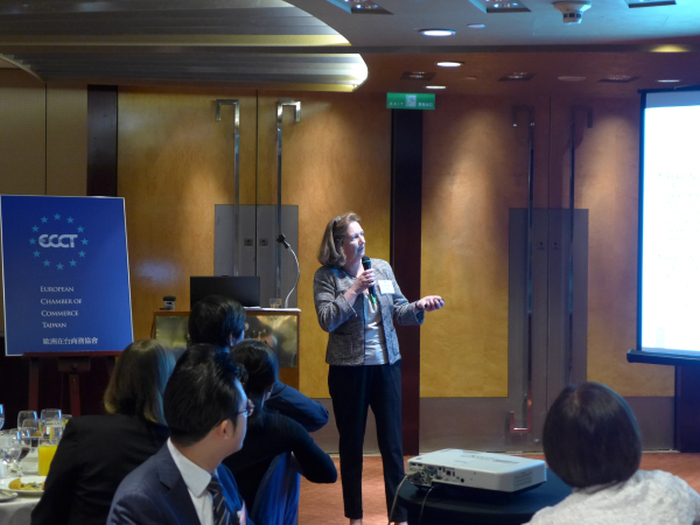HR trends and developments in Taiwan

Christine Raynaud, CEO of MRIC

Ken Sun, General Manager of National Instruments Taiwan
The report reveals Taiwan respondents are most mobile workforce with 63.5% interested in relocating overseas. Last year, most people moved because they wanted promotion. Raynaud concluded that leaders should know what employees want and care about and try to create win-win solutions based on this.In his presentation, Ken Sun emphasized how important it is to show employees that they are valuable to the company. For example, his company demonstrates the personal touch and works to build positive connections with employees and their families by sending flowers and cards to the parents of new employees after they pass training and probation periods. NI has a commitment to cultivating future entrepreneurs and even if employees cannot move forward with the company, NI encourages and helps them to find opportunities elsewhere.
Sun also spoke about creating a positive working environment. For example, meetings don't always have to happen in a meeting room.
Meeting in a coffee shop or just walking in the street with a cup of coffee, could achieve more positive results than the formal setting of a meeting room.
Diana Chang gave details on Schneider's comprehensive talent recruitment and retention programme. One important component is the company's active recruitment in colleges by holding events to inform students about the company. Schneider has both regional and global talent programmes. Some employees are sent abroad for training to several different countries including as the United States, France and Turkey for training and project work. The new recruits have to present the results of their project work to the senior management team to show what they have learnt and accomplished. The process helps the company identify and nurture talented individuals to prepare them to take on senior positions later on in their careers.
For PPT, please click the links below:
